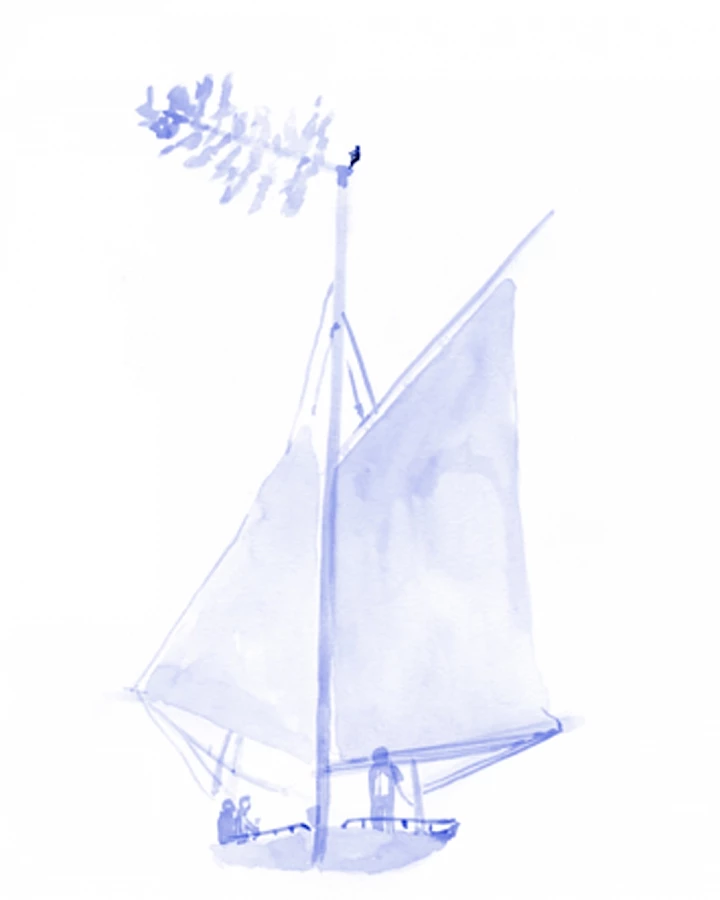
#27 APRIL 2016
Imagine a fantastic voyage from Norway to Istanbul in an old wooden sailing boat built for Arctic voyaging.1 This boat is carrying an ingeniously crafted mini-boat, like a chalice, containing a mere handful of old wheat and rye seeds found in a museum in Saint Petersburg in Russia and in the roof beams of a sauna in northern Norway. These seeds are like jewels. The disproportion in size between the small chalice and the mother vessel carrying it symbolises preciousness, as does the very idea of a prolonged voyage using wind and sail as the means of propulsion.
A sea voyage such as this offers space for reflection and the reconsideration of basics. It offers the a chance to slow down the madness that is the speed up of the present dispensation.
Surreal to a fault, this voyage is at once mythical, scientific, and political. It is a voyage back through time and space to the origins of these seeds in what is now called eastern Turkey or northern Kurdistan, a region now under siege.
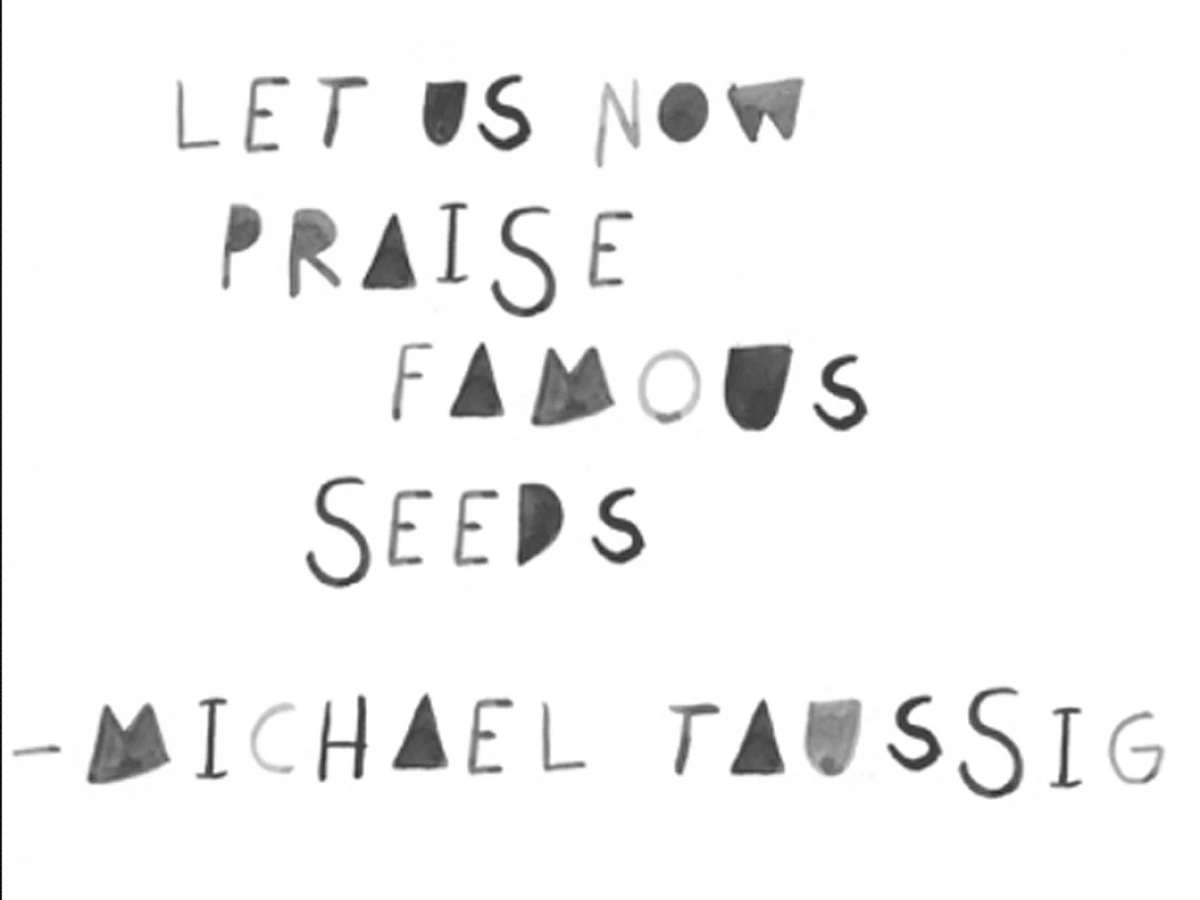
By bringing these seeds "home", the sailors wish to draw attention to the genetic erosion of the world's seed stocks. As reported by the FAO (Food Agriculture Organisation), some 75% of the world's food is now generated from only twelve plants and five animal species. Check out your local supermarket to verify this. Whereas even fifty years ago there were many, in some cases dozens of, varieties of wheat, rye, potatoes, beans and strawberries being cultivated, today there is but a pitiful number. Like the rapid and ongoing disappearance of the world's languages, this radical shrinkage in food species, again according to the FAO, is largely a result of "the rapid expansion of industrial and Green Revolution agriculture" spearheaded by enormous agribusiness companies such as Monsanto and Cargill. Not only is the variety of the seeds diminished or lost, but the culture and skills associated with them as well. Nowadays the key relationship is not with nature but with the seed vendor who sells "improved" seeds that, let it be noted, cannot be re-used. The seeds are engineered so as to prevent planting from stock set aside from the harvest. This is fact and also an allegory of the new set of dependencies facing humankind today.
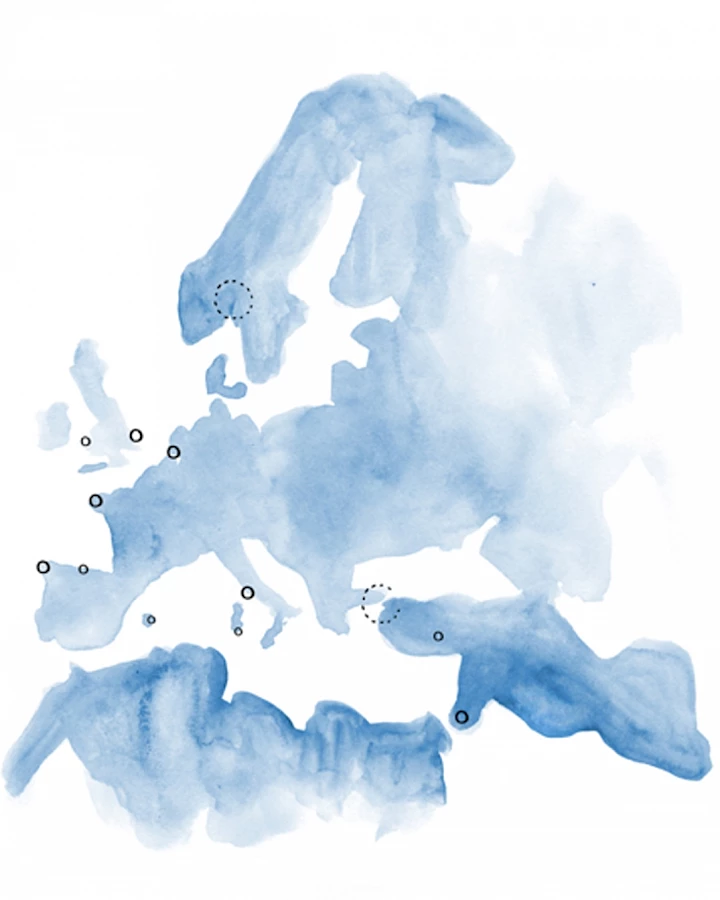
Over many millennia the domestication of plants involved a long march through trial and error, not to mention chance, whereby certain varieties became reliable foodstuff. Cultivators in each and every microclimate developed their own varieties of seed stock. Today there are farmers in Europe and the Americas who are liable to arrest or law suits if they continue with their traditional seeds. Such farmers are themselves an endangered species.
In the near future, it is possible that a handful of geneticists and businessmen will reconstruct the planet's genetic infrastructure. Starting with the genetic engineering of food and farms, there will be ripple effects into all sorts of genetic domains. This is the sort of scenario laid out in Aldous Huxley's Brave New World and George Orwell's 1984 as well as Edward Snowden's courageous revelations concerning world surveillance. It is what Michel Foucault meant by "bio-power", where not the power to kill but the power to make life through bio-engineering defines the new forms of governance, albeit side-by-side with the power to kill. The sea-voyage from Norway to Istanbul is what could be called a museum-event, an art movement with no fixed location but instead, in the phrase of Gilles Deleuze and Félix Guattari, representis a line of flight and an inspired "deterritorialisation". It is mobile and nomadic, moving from wave to wave and port to port, from Norway to England, the Atlantic coast of Europe, various ports in the Mediterranean, until it reaches Turkey. And then...
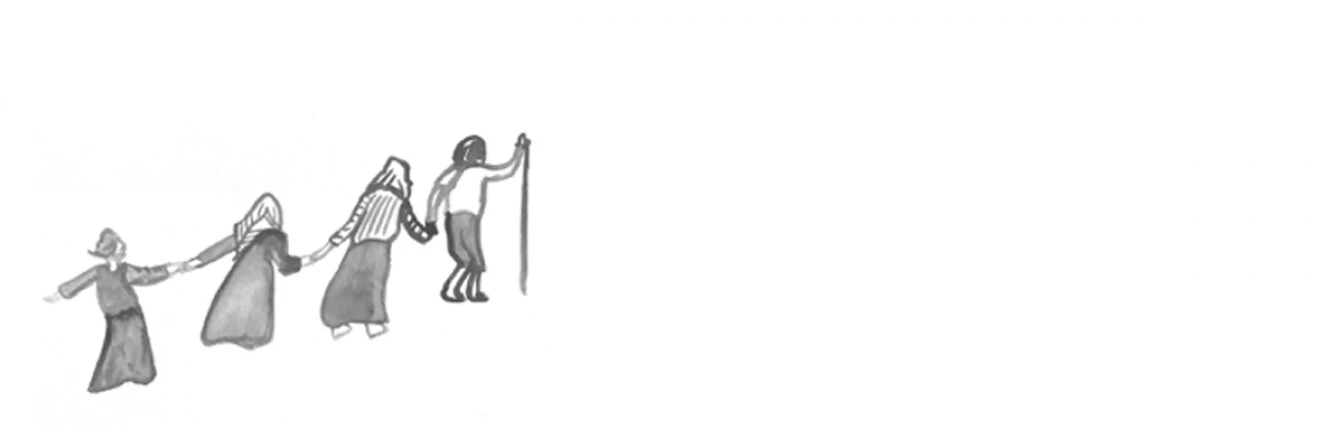
It is a travelling school that provides a novel space and opportunity for debate and stimulation in the various ports where it drops anchor.
It is an illustration in itself of low-tech, craft-oriented, open-source solutions to global warming in which the maxim is not the domination of nature but the mastery of non-mastery as with the use of wind to fill the sails. In a circle thousands of years old, this voyage is more than a homage of north to south or of remembrance since the ship sails as much into the future as it does into Kurdistan. The point is not to oppose technology and science but to shift control and oversight of the means of production from the few to the many.
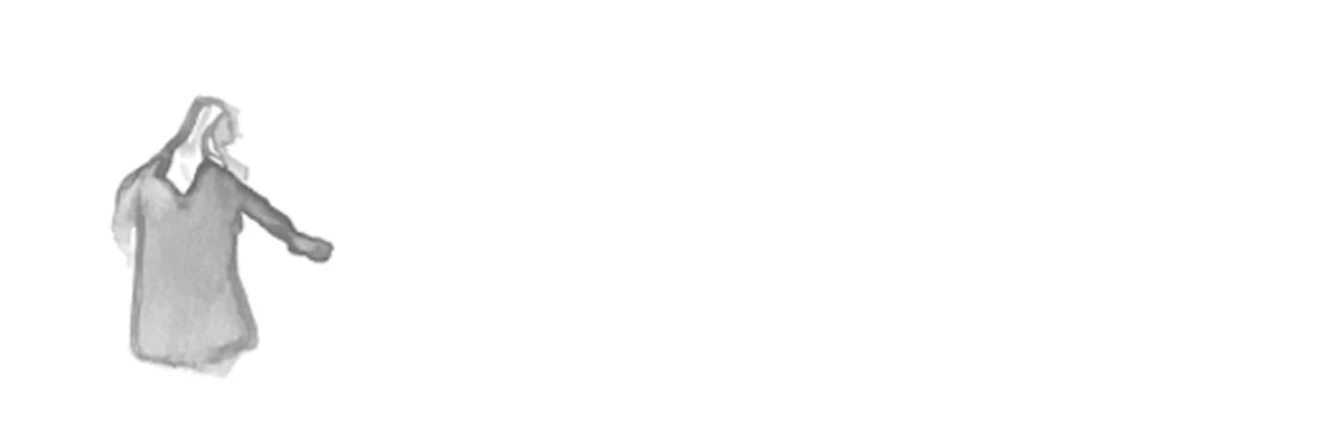
The so-called "green revolution" with "miracle seeds" sponsored by the Rockefeller Foundation after the Second World War was hailed as the technological fix to world hunger with the "discovery" of dwarf wheat and laboratory-engineered rice. This was at the beginning of the Cold War when fears of communist parties in the Third World dominated policy. But by the early 1970s, it was becoming obvious that the miracle seeds proved to only be a fix for rich farmers who could afford the irrigation and chemicals that such seeds require. The pauperisation of the peasant and enrichment of the large farmers evolved into giant agribusiness concerns and government-sponsored bio-power megaprojects such as palm oil in Malaysia, Indonesia, and Colombia.
This focus on "miracle seeds" was a "magic bullet" solution, ignorant of real farming situations and local economies. There was, and is, enough food in the world to feed everyone. The problem resides in the distribution of the food that exists. Most people are too poor to buy it. All this painful history and complexity is encapsulated in our beamy boat with its handful of seeds sailing "home" with stories to tell, as is the wont of the traveller.
And what stories these seeds contain!
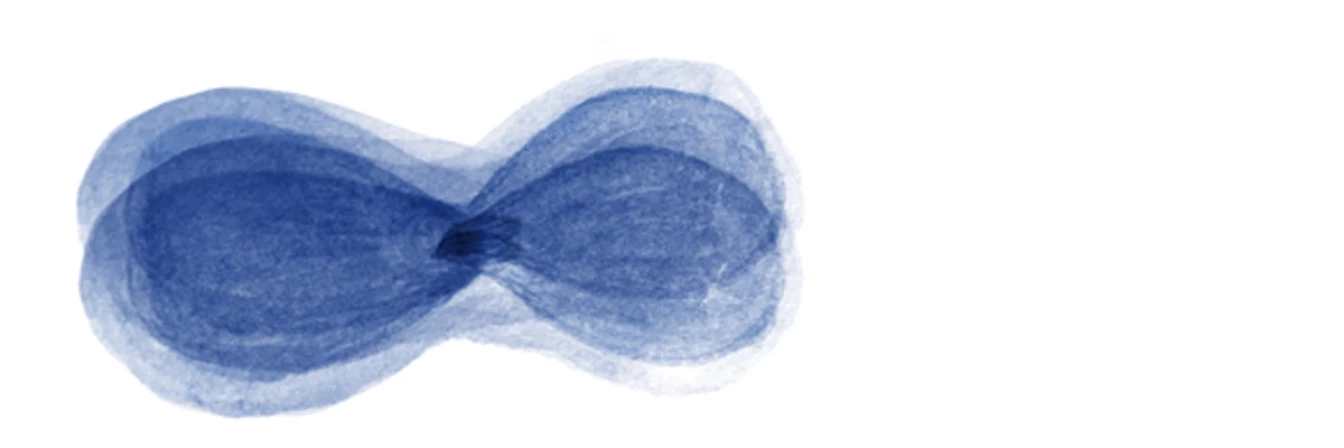
One famous story concerns the new social configuration set in motion by the conversion of wilderness into the open field farming that cut down forests. This basically correlated with the development of patriarchy, private property, and the state, an end result of which is today's agribusiness. This Neolithic Revolution has become the focus of another revolution on the margins of Turkey and in the wheat growing areas of Kurdish Syria, namely the "stateless democracy" contesting patriarchal ideas and hierarchical political structures while searching for eco-friendly farming techniques. By chance if not design, the voyage of our sailing ship is thus part of a historical trajectory that is bound neither to patriarchy nor the state.
Of course the other voyage of food is through our bodies as "reverse engineering". Are we all carrying the history of grain voyages in our bodies? When eating, are we not performing the interaction of planet Earth with the human marauder, bringing outsides into insides, the fields and rain and efflorescence of seed into the dark inner world where history – measured in aeons – combusts? Welcome to another "museum event" which you carry out in yourself each and every moment of the day.
The return of ancient seeds takes apart this long history fold-by-fold. This voyage is an allegory, one forever open to chance. Our participation from afar breathes wind into the sails of the future.
the end
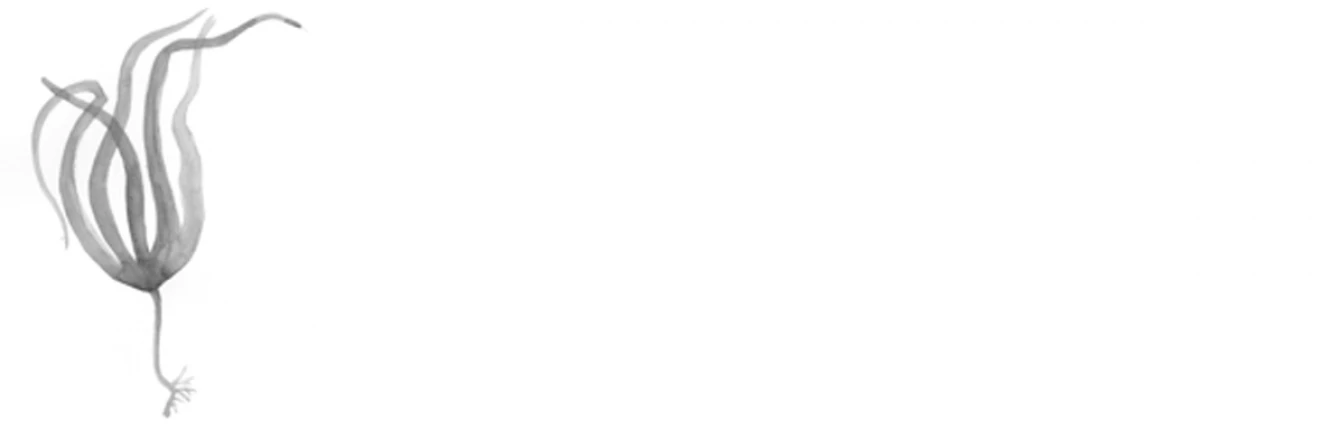
The views and opinions published here mirror the principles of academic freedom and do not necessarily reflect the views or positions of the L'Internationale confederation and its members.